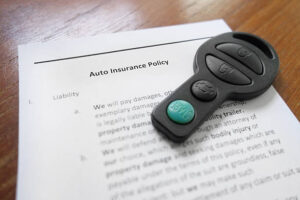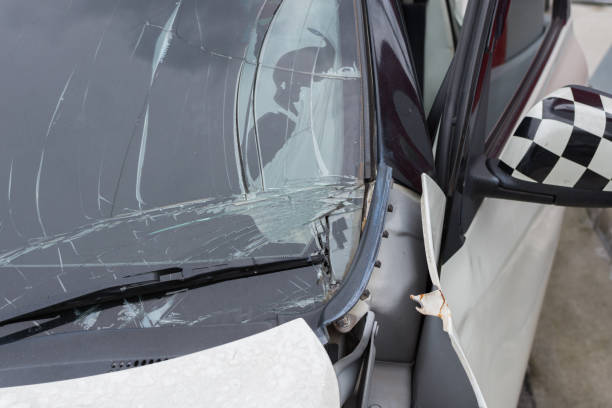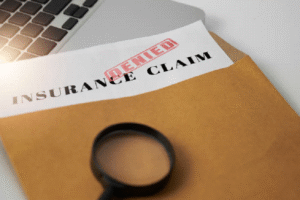Choosing the right auto insurance can feel confusing. Should you go with full coverage that protects your car from nearly everything, or stick with liability-only insurance, which covers the basics and saves you money?
This decision isn’t just about how much you pay for insurance—it affects your financial security, your peace of mind, and how well your car is protected if something goes wrong. In this article, we’ll break down the differences between full coverage and liability-only auto insurance in plain language. By the end, you’ll know what each option covers, who it’s best for, and how to decide which fits your needs.
What Exactly Is Liability-Only Auto Insurance?
Liability-only insurance is the most basic type of car insurance required by law in almost every state. When you buy liability-only coverage, you’re basically telling your insurer:
“If I cause an accident, I’ll pay for the damage I do to other people or their property — but I won’t ask you to pay for damage to my own car.”
So, what does liability-only insurance cover?
-
Bodily Injury Liability: This helps cover medical bills, lost wages, and other costs if you injure someone else in a car accident.
-
Property Damage Liability: Pays for repairs if you damage another person’s vehicle, a fence, a building, or any other property.
-
Legal Defense: If someone sues you because of an accident, your insurance will cover your legal fees and any settlements or judgments up to your policy limits.

Who Should Choose Liability-Only?
Liability-only insurance is a great option for:
-
Drivers with older cars that are worth less money
-
People on a tight budget who want to save on premiums
-
Those who can afford to pay for repairs or replacement out of pocket if their car is damaged
The key here is understanding that with liability-only, if your car gets wrecked or stolen, you’re on your own financially.
What Is Full Coverage Auto Insurance?
“Full coverage” isn’t a single policy you can buy. Instead, it’s a term that means you have liability insurance plus both collision and comprehensive coverage.
Here’s what each part does:
-
Liability: Covers injury or damage you cause to others (same as liability-only insurance)
-
Collision: Pays to repair or replace your car if you’re in an accident — no matter who is at fault
-
Comprehensive: Covers damage to your car from things other than collisions, like theft, vandalism, fire, hail, or hitting an animal
In short, full coverage protects your own vehicle from nearly all the major risks on the road.
Who Benefits from Full Coverage?
Full coverage is best for:
-
Drivers with new or expensive cars that would cost a lot to repair or replace
-
Those who still owe money on a car loan or lease (lenders often require full coverage)
-
Anyone who wants peace of mind knowing they won’t be left with a huge bill if their car is damaged or stolen
How Much Does Full Coverage Cost Compared to Liability-Only?
One of the biggest reasons people hesitate to get full coverage is cost. Full coverage can be two to three times more expensive than liability-only insurance.
Your actual premium depends on many factors:
-
Your car’s value and age
-
Your driving record and claims history
-
Where you live (urban areas tend to have higher premiums)
-
Your chosen deductible (the amount you pay out of pocket before insurance kicks in)
Smart Tip:
Before deciding, get insurance quotes for both liability-only and full coverage based on your vehicle’s current condition and value. You might be surprised how close the prices are sometimes — especially if your car is newer or you have a clean driving record.
When Might It Make Sense to Drop Full Coverage?
Full coverage is great — but it’s not always worth the cost, especially if your car isn’t worth much anymore.
Think about dropping full coverage if:
-
Your car’s market value is very low (for example, older than 10 years or worth less than a few thousand dollars)
-
You’ve paid off your car loan, so you own the car outright
-
The annual cost of full coverage exceeds your car’s value, meaning you’d spend more on insurance than you’d get if your car were totaled
At this point, switching to liability-only might be a better financial move. You save on premiums, and if your car is damaged, you can decide whether it’s worth repairing or replacing yourself.
What Are the Risks of Choosing Liability-Only?
Choosing liability-only is budget-friendly, but it’s not without risks.
-
If your car is damaged or stolen, you’ll have to pay for repairs or replacement out of your own pocket
-
If you’re in an accident and it’s your fault, you have no coverage for your medical bills or car repairs unless you have separate medical or health insurance
-
Living in an area prone to theft, vandalism, natural disasters, or extreme weather means liability-only leaves you vulnerable
-
If you get into a serious accident, repair costs could be thousands of dollars, which might be financially devastating without coverage

How to Decide: Full Coverage or Liability-Only?
Choosing between full coverage and liability-only comes down to three main things:
1. The Value of Your Car
-
If your car is worth a lot, full coverage protects your investment
-
If your car is old and inexpensive, liability-only may be enough
2. Your Financial Situation
-
Can you afford to replace or repair your car out of pocket?
-
Do you have savings or other assets that could cover a big unexpected bill?
-
Are you comfortable risking the cost of an accident to save on premiums?
3. Your Comfort Level and Peace of Mind
-
Do you want to avoid worrying about what might happen if your car is stolen or damaged?
-
Are you willing to pay more now to avoid big bills later?
-
Does your lender require full coverage?
Final Thoughts: Protecting Your Car and Your Wallet
There’s no one-size-fits-all answer to full coverage versus liability-only insurance. Each has its place depending on your car, budget, and risk tolerance.
-
Liability-only insurance is perfect if you’re looking to save money and drive an older car you can afford to fix yourself.
-
Full coverage is ideal if you want the security of knowing your car is protected against almost everything life throws at it.
Before making a decision, take the time to review your vehicle’s value, your finances, and your insurance quotes. Talk to an insurance agent if you’re unsure — they can help you find the best balance between cost and coverage.
Remember, the right insurance policy not only protects your car but also helps you drive with confidence and peace of mind.





